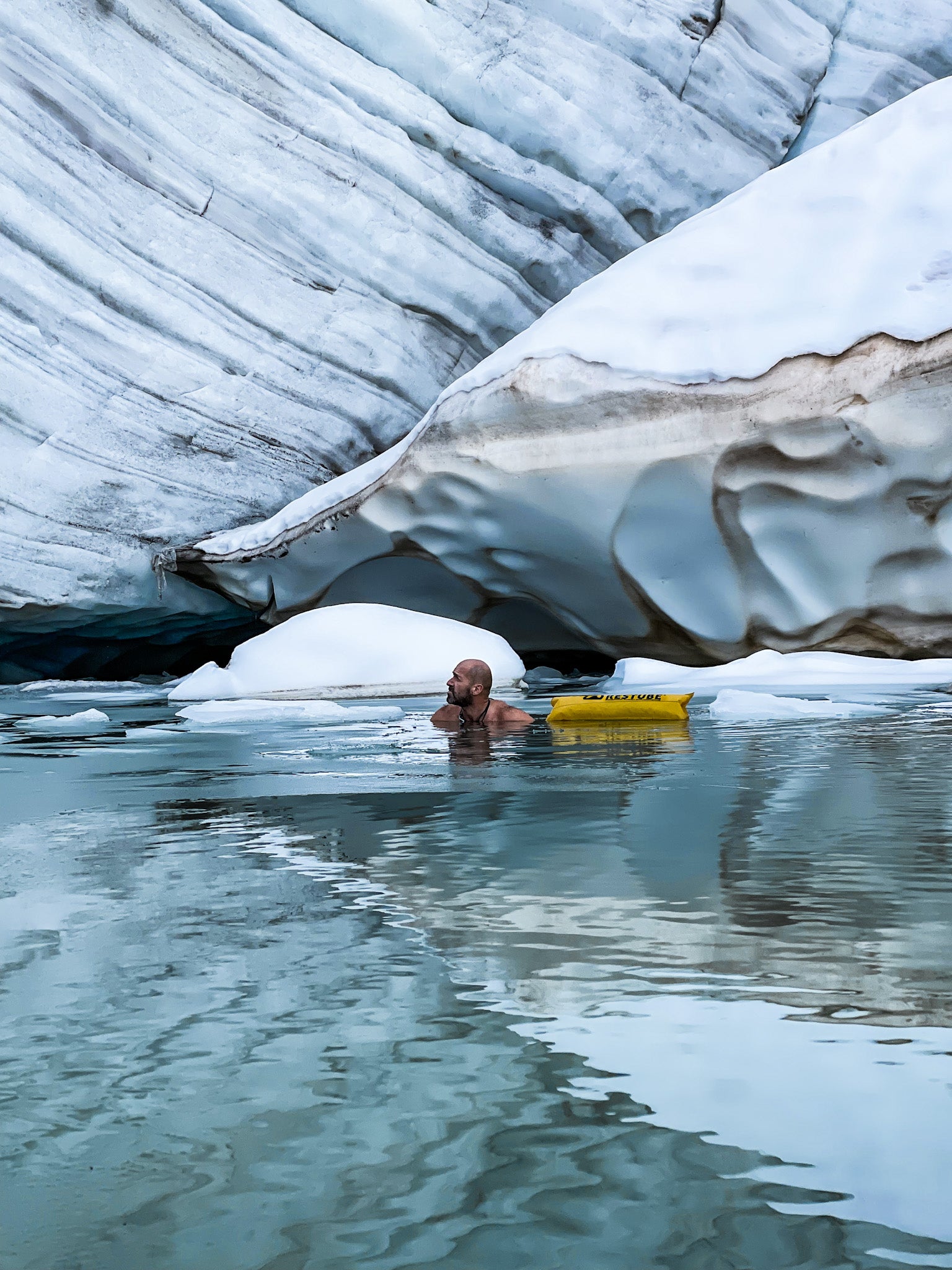Learn the SUP Basics for your adventure on the Stand-Up Paddle Board with RESTUBE
We at Restube will support you by providing the essential tips for Stand Up Paddling.
In this SUP guide we will show you all the basics you need to know – from how to use the paddle to how to get back up on your board when you fall off.
We will also inform you on Paddle Board safety and advise you on what safety devices are necessary for a relaxed time on the water.
Sonni Hoenscheid helped to develop this SUP guide and contributed many useful Stand Up Paddling tips.
Sonni is one of the world’s best Stand Up Paddler and has won 7 world titles so far. She lives on Fuerteventura as well as on Hawaii where she is currently training for her next world cup races.
Table of Contents
To help guide you through the SUP Guide we have set up a list of the following chapters.
By clicking on one of the bullet points you will be directed straight to the chapter.
STAND UP PADDLING TIPS FOR BEGINNERS
#1 THE CORRECT SUP PADDLE LENGTH
As a general rule the SUP paddle should be as high as your wrist when you reach out with your arm overhead.
Your personal preference in paddle length may be different though. Try different lengths in the beginning to find out which suits you best.

|
#2 HOW TO HOLD THE PADDLE
Hold the paddle so the blade slopes away from you. In this way the blade will create lift and allow you to move faster with less effort.
 |
 |
#3 HOW TO STAND UP ON THE BOARD
Walk your board into the water, make sure it is deep enough, so the fins do not touch the ground. Place your knees centred on the board and paddle into deeper water, so you do not get hurt in case you fall. When you feel comfortable on your knees, slowly lift your upper body, feet hip-distance apart, look forward.
Once you are standing start to paddle quickly – it will help you gain stability. Please note, in case you fall off your board, always try to fall “flat” in the water, never head or feet ahead.
 |
 |
#4 HOW TO PADDLE
Place your feet centred, hip-distance apart (watch out for the handle bar, it is in the middle of the board). One hand is holding the paddle at the top, the other one is placed in the middle.
Plant the paddle blade vertically in the water and pull towards your body. Once the blade is in line with your feet, pull it out of the water and prepare for the next paddle impact. Change sides regularly to go straight ahead.
Extra Tip: Paddling in a sitting Position
You find it difficult to get on your feet on the board straight away? Try paddling while you are leaning on your knees. Keep paddling in this position until you get enough stability on your board.
#5 HOW TO TURN
Plant your paddle towards the front of the board and take a long sweeping stroke towards the tail. Stepping one foot back on your board helps making a turn faster.
 |
 |
#6 HOW TO GET ON THE BOARD IN THE WATER
Once you have fallen into the water, get up onto the board from one side. Grab the opposite rail for more stability and pull yourself up on the board – one leg at a time.

|
PADDLE BOARD SAFETY
#1 CHECK THE CONDITIONS
Make sure you get good information about weather, waves and wind (e.g. on windfinder.com)
#2 MAKE YOURSELF COMFORTABLE WITH THE WATER
Make sure you get good information about weather, waves and wind (e.g. on windfinder.com)
#3 WEAR A LEASH
By wearing a leash, you make sure the board stays close to you at any time. Please note wearing a leash on the river can be dangerous and is not advised!
#4 CARRY A BUOYANCY
Always wear a Restube or PFD (Personal Floating Device). Pay attention to the local rules.
#5 EVASION RULES
Pay attention to other people on the water, boats and ships.
#6 RESPECT NATURE AND WILD LIFE
Avoid noise and rubbish. In case you find rubbish, pick it up!
OUR ADVICE
Take a course and learn Stand Up Paddling tips from certified teachers.
VDWS water schools are your perfect SUP guides when you want to learn how to Stand Up Paddle. For more information check www.vdws.de
FREEDOM AND SAFETY ON WATER
To make you feel comfortable in the water, we at Restube invented a little bag with an inflatable buoy for more freedom and safety for any kind of water adventure. Attached on a belt around your waist, you will hardly notice Restube but it will help you to enjoy your time out in the water even more. Restube is your “peace of mind”.
WHICH RESTUBE IS BEST FOR YOU AND FOR YOUR ACTIVITY
Take our quiz and find out in under 1 minute which Restube suits best to your water activities.
Also have a look at our Restube comparison table for Stand Up Paddling below to find out about the differences between pfd by RESTUBE and Restube active.
PFD (PERSONAL FLOTATION DEVICE) AND RESTUBE – WHAT’S THE DIFFERENCE?
Please note: some countries and waters (e.g. Switzerland, Lake Constance) require certified buoyancy aids and devices for Stand Up Paddlers, such as pfd by RESTUBE.
We hope this SUP Guide is helpful for you! Share it with your friends and leave a comment - we would love to hear from you!
Have fun on the water!
Johanna
/for RESTUBE





